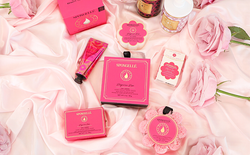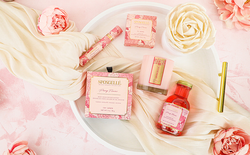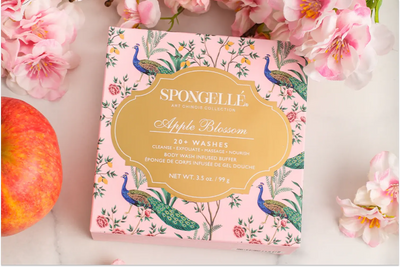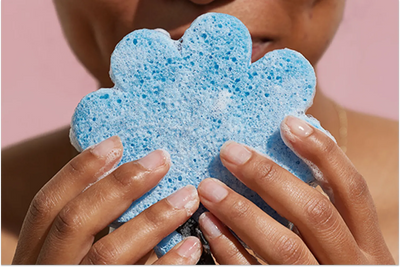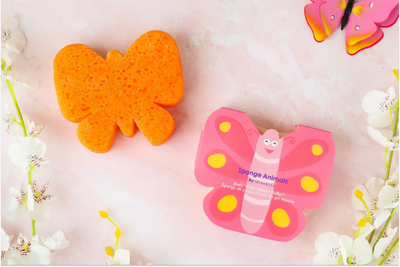When you need to moisturize your dry, chapped hands or feet, shea butter and coconut oil are two popular ingredients you may look for in a product. Both shea butter and coconut oil are known for their rich, creamy emollient textures and their unique healing properties.
Shea butter and coconut oil are naturally free of artificial fragrances, parabens, and petroleum. This natural simplicity takes the guesswork out of ingredient labels and places the focus on the product itself.
Let’s look at the differences between shea butter and coconut oil and the benefits of each.
What Is Shea Butter?
Shea butter is a rich vegetable fat extracted from the nut of the West and East African native shea tree. The nuts are removed from the shea fruit and dried in the sun. They are then boiled, and the fatty shea butter is removed.
There are two main types of shea butter, according to the CBI. These two types are East African and Western African. Shea butter is high in linoleic acid, oleic acid, palmitic acid, and stearic acid.
Shea butter has a creamy, ivory-colored consistency that is easily spreadable. Shea butter has many uses. It is primarily known in the cosmetic and beauty industries for its moisturizing and soothing properties. Allergies and reactions to shea butter are rare, although it is comedogenic (tendency to cause blackheads).
Cosmetic Uses for Shea Butter
Shea butter contains four essential properties that make up its rich consistency.
The elements that create shea butter’s chemical makeup are:
- Vitamin A, vitamin K, and vitamin E- promote circulation and skin smoothness
- Linoleic acid, palmitic acid, stearic, and oleic fatty acids- Balance oils in the skin
- Triglycerides- condition the skin
- Cetyl esters- conditions skin and helps it retain moisture
Some of the top cosmetic and beauty uses of shea butter include:
- Hair treatment products- Helps combat itchy, dry scalp and tames flyaways. Shea butter is used in hair treatment products to help moisturize the hair for profound therapeutic, hydrating benefits.
- Moisturizing skin and face creams- Shea butter is known for its healing, anti-inflammatory properties. Its rich hydrating effects can last several hours. Shea butter also has soothing anti-aging benefits and reduces fine lines due to its ultra skin-quenching elements.
- Lipstick and lip gloss- Shea butter is rich in fats which makes for fantastic rich lip color.
- Soaps- Shea butter is a luxe additive in soaps. It moisturizes the skin and is perfect for sensitive skin types.
-
Helps heal scars and reduce their appearance- Shea butter is rich in vitamins A, vitamin E, vitamin K, alpha-linolenic acid (ALA), and linoleic acid (LA), all of which are great for scar healing.
Medicinal Uses for Shea Butter
Shea butter has many medicinal uses. It is used as the therapeutic base for ointments. Although a few of these medicinal uses have yet to be backed by scientific proof, they are still commonly used for these purposes.
Some of the ways that you can use shea butter medicinally are:
- Shea butter soothes muscle aches and pains. Some people claim a reduction in pain by massaging shea butter into inflamed sore muscles and joints.
- Shea butter may lower cholesterol. Shea butter is rich in a saturated fatty acid called stearic acid. Stearic acid is shown to reduce lipoprotein and plasma cholesterol levels in a study performed by The American Journal of Clinical Nutrition.
- Shea butter may help treat eczema, dermatitis, and psoriasis. Since it has emollient and humectant properties, it aids in deep moisturization.
- Shea Butter to help skin heal. Unrefined, raw shea butter may effectively treat skin rashes, razor burns, dry skin, sunburns and peeling skin, stretch marks, bee stings, athlete’s foot, and acne.
-
Shea butter for nasal health. Shea butter can be used for sinusitis and nasal congestion relief.
Shea butter is also effective as a minimal sun-blocking agent with an estimated SPF of three to four. Layering it over your sunscreen will add extra sun protection and moisturization, to prevent sunburns and skin peeling, and get ready for the best beach day ever.
Types of Shea Butter
Shea butter comes in two forms:
- Refined- The scent is removed during a process and makes it more white in color.
- Unrefined- The shea butter is extracted and prepared using no artificial chemicals or preservatives.
Unrefined shea butter with a grade of A is generally considered to be the best and has many admirers.
What Is Coconut Oil?
Coconut oil is an edible oil derived from coconut. It originates from the tropical regions of Asia.
Coconut oil has become popular in recent years due to its health benefits. It is known for its benefits of curbing the appetite, boosting the immune system, and preventing heart disease.
Cosmetic Uses for Coconut Oil
Coconut oil is used for many cosmetic uses, such as skin care and hair care. It is high in fatty acids such as lauric acid, which makes it a fantastic moisturizer.
Coconut oil is composed of many fatty acids, which include:
- Caprylic acid
- Capric acid
- Lauric acid
- Myristic acid
- Palmitic acid
- Stearic acid
- Oleic acid
- Linoleic acid
Coconut oil uses in the following ways for cosmetic purposes are:
- Deep conditioner- Coconut oil is a great deep conditioner for hair to help repair damage from hair color and heated hair tools.
- Deodorant- Coconut oil has antimicrobial properties that help decrease odor. It is also a healthy option if you want to avoid chemicals.
- Lip balm- Coconut oil is high in fats that help replenish moisture in dry, chapped lips.
- Shaving oil- Coconut oil makes a great shaving oil because it is moisturizing, soothing, and helps protect the skin from razor burn.
-
Face moisturizer- Use coconut oil on your face (depending on your skin type) to smooth out the texture and moisturize your skin post-cleansing. Below we will discuss skin types best suited for coconut oil.
Medicinal Uses for Coconut Oil
Coconut oil has fatty acids that can help burn fat and provide energy to the brain and body. It is also high in saturated fats (MCTs) that have various effects on the body differently than other saturated fats.
Coconut oil is used medicinally in the following ways:
- Coconut oil may boost heart health.
- Coconut oil may help reduce appetite due to the MCTs (medium-chain triglycerides) it contains. This reduction may result in weight loss over time and a reduction in seizures.
- Coconut oil may raise good cholesterol (HDL), boosting heart health by lowering LDL levels. LDL builds plaque and blocks arteries.
Coconut oil is a healthy multi-tasker. It also comes in refined and unrefined forms, with unrefined being the more popular health choice.
Virgin coconut oil is a more pure form derived from the pressed milk of a coconut. This type is best for skincare, while refined coconut oil is better for cooking and baking.
Shea Butter vs. Coconut Oil for Skincare
So, the question lies, which is better for your skin? We know that both shea butter and coconut oil are terrific compounds used for various cosmetic reasons and to treat ailments. However, there is one main factor of difference when considering which one to use for your skin.
-
Shea butter is safe to use on all skin types. That means that if you have oily or dry skin, it won’t irritate your skin. Shea butter also has a calming effect on the skin and reduces inflammation.
- While coconut oil does have antimicrobial (reduces mold) properties that can be beneficial, it is also oily. That means that if you have oily skin, it could cause breakouts. Breakouts can occur when the coconut oil builds up and causes clogged pores and blockages. It is best to use coconut oil on dry and normal-to-dry skin types.
Both shea butter and coconut oil are great skincare options, depending on your specific skin care needs. Always keep in mind that it is best to purchase and use cold-pressed, virgin shea butter and coconut oils.
Cold-pressed, virgin oils are not exposed to the extraction heat used in processing which can lead to quicker oxidation (meaning the oils become rancid), thus exposing the precious oils to chemicals and damaging the fats. Purchasing organic is also beneficial because it reduces the potential of the oil’s exposure to pesticides and excess chemicals.
Pick Your Potion
Crucial health and skincare benefits can be found in shea butter and coconut oil. If you have oily or acne-prone skin, shea butter is a moisturizer that would benefit you if you’re using it on your face or other acne-prone skin areas. Those with dry and normal skin will benefit from products with both shea butter and coconut oil.
Spongellé offers many skincare products containing shea butter and coconut oil. The Pearl Blossom Body Soufflé is a rich, buttery, and lightly scented moisturizer formulated with shea butter, Vitamin E, and a hint of shimmer.
We are all incredibly unique, so make sure to read product labels before deciding which product is perfect for you.
Moisturization protects your skin and makes you feel good. Go ahead and indulge. Your skin will thank you.
Sources:
The European market potential for shea butter | CBI
Stearic acid favorably affects blood | Meta.org
Preliminary studies on nasal decongestant activity from the seed of the shea butter tree | NCBI
Coconut Oil | The Nutrition Source | Harvard TH Chan School of Public Health
Coconut oil and palm oil's role in nutrition, health, and national development: A review | NCBI


